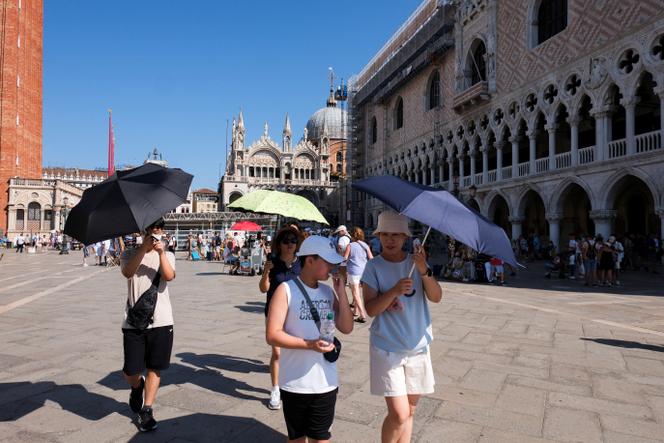


As evening fell, guide Stefano Croce reached the top of the Rialto Bridge, the mesmerizing center of the tourist's Venice, a mythical city he fears might engulf that of the Venetians. "We have a choice: To remain a city by controlling this industry, or to become a theme park," he said. He walked between two rows of souvenir stores, against the flow of a receding crowd crossing the Grand Canal congested with gondolas, after complaining about competitors who told their customers that St. Mark's Basilica was dedicated to the explorer Marco Polo.
On this mid-August day, summer had reached its peak. In concentric circles around the Rialto, Venice's incredible labyrinthine, amphibious beauty was bursting with sad lines of visitors guided by earpieces, passing in front of entrance doors where the words locazione turistica have replaced forgotten surnames. The place was teeming with passing individuals, busy for a few hours or days as they projected their desires onto the backdrop of a precious, fragile city. "I hope that this time, the procedure will go through," said 61-year-old Croce, in reference to a July 31 UNESCO report on Venice recommending its inclusion on the World Heritage in Danger list.
After it was avoided in 2021 thanks to a decree on cruise ships, the sanction could be voted in September, driven by the authorities' inability to preserve the "cultural and social identity" of a tourist archipelago whose population dropped below 50,000 in 2022 (compared to 171,000 in 1951), despite attracting 30 million visitors annually. However, there's nothing new about such talk and scenes. As early as 1964, news reports were already discussing "mass tourism [corrupting] the traditions" of Venice. In 1969, UNESCO described the exodus of its inhabitants as an "attack on the city."
"The problems pointed out today are the results of choices made half a century ago, which can no longer be completely reversed," said urban anthropologist Clara Zanardi, author of La Bonifica Umana: Venezia dall'Esodo al Turismo ("The Human Reclamation: Venice from Exodus to Tourism," untranslated, Unicopli, 2020), in a village square on the Lido where she moved to escape "touristification."
In the 1970s, the abandonment of the lagoon's industries led to a total exploitation of the Venetian tourist gold mine, where cultural assets were considered "Italy's oil" before local authorities called for "privatizing Venice" in the 1990s. The rise of Airbnb has spread this income, emptying Venice of small owners, who now capitalize on their heritage from the mainland by renting it out. "Whether they accommodate, feed, or transport tourists, too many stakeholders rely on the historic center as a golden goose, making it difficult to impose significant limitations. UNESCO's opinion doesn't matter," said Zanardi.
You have 65.74% of this article left to read. The rest is for subscribers only.
